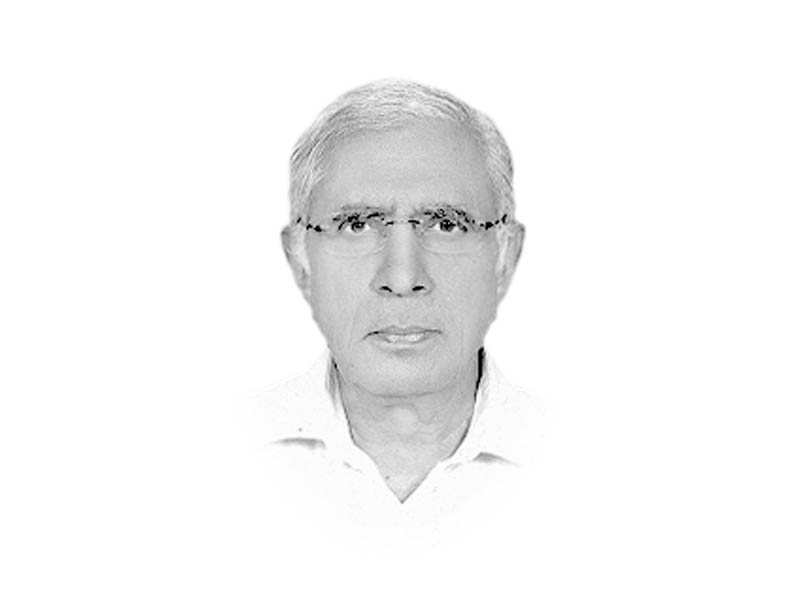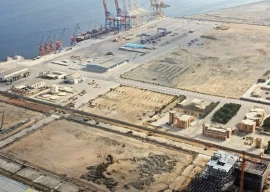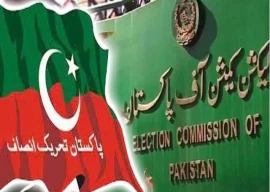
The electoral reform chatter seems to have disappeared from media headlines as suddenly as it had appeared during the run-up to the last Senate elections. No one is currently debating the pros and cons of using the Electronic Voting Machines (EVM) in the next general elections, the number of such machines needed to cover the entire voting population, the number of skilled persons needed to operate them at voting points and the total cost of the entire exercise. Even the introduction of biometric system or voting rights to overseas Pakistanis needs a thorough national debate.
But even before we debate these issues, it is equally important that steps are taken to ensure the impartiality of state and government institutions in the electoral process. It is no more a state secret that every general election held since the 1980s has been manipulated by the state with total impunity. And after each such general election the emerging governments in order to cover up their democratic weaknesses had indulged in persecuting the opposition, even instituting against them false cases of treason.
But then, even if the next general election is held with the state remaining politically neutral and the emerging government focusing more on governance rather than covering up its democratic weaknesses, the result would still be far from being truly democratic because the First-Past-the-Post system (FPTP) practised in Pakistan does not translate all votes polled into true representation. It yields a parliament and a government that does not represent a majority.
According to a study conducted by FAFEN, the governments so formed have been democratically weak as they have never represented more than 17% of the registered and 46% of the polled votes. The current government represents 31% of the polled, 16% of the registered, and 8% of the total population.
According to historical analysis of election results by FAFEN, 53% of all votes polled in GE 2002 did not translate into any representation, 50% in GE 2008, 52% in GE 2013, and 57% in GE 2018. As a result, the political parties get seats in the assemblies disproportionate to their share of votes. For example, MMA bagged 2,604,086 votes in GE 2018 with 12 seats in the National Assembly, while TLP was polled 2,194,978 votes but with no seats. The vote per seat ratio of other political parties in GE 2018 also presents a compelling case for a more extensive debate on the change of the election system.
Alternative and more advanced representation systems such as the List Proportional Representation System may be considered to ensure that electoral outcomes translate a maximum number of votes polled into representation, reflecting political diversity. As many as 89 countries worldwide now use variations of PR systems for their representational efficacy.
The model of elite democracy requires urgent rethinking through appropriate measures that can minimise the use of money in elections.
Another critical area is delimitation. The principle of equally-sized constituencies must strictly be protected in any future reforms. There are at least 81 National Assembly and 92 Provincial Assembly constituencies that do not fulfil the legal requirement of +10% variation in the population. A comparative assessment of the electoral constituencies reveals uneven population across constituencies. Delimitation based on an equal number of voters would be democratically more appropriate.
Another critical area is voter registration. Unless the voter registry is complete, there cannot be an election that may be considered entirely fair. As many as 12.41 million women continue to be disenfranchised since these women do not have national identity cards, a legal prerequisite for their voter registration. The actual scale of under-registration will, however, be established once the government notifies the age disaggregated results of the population census undertaken in 2017.
An effort towards reforming the election system will be incomplete if it did not address its inability to yield a representation of all economic classes, ethnicities, religious minorities, and sexes in the elected houses. Tangible measures are required enabling it to transform the political, ethnic, and religious diversity in Pakistan into a strength rather than a source of division and fragmentation.















COMMENTS
Comments are moderated and generally will be posted if they are on-topic and not abusive.
For more information, please see our Comments FAQ